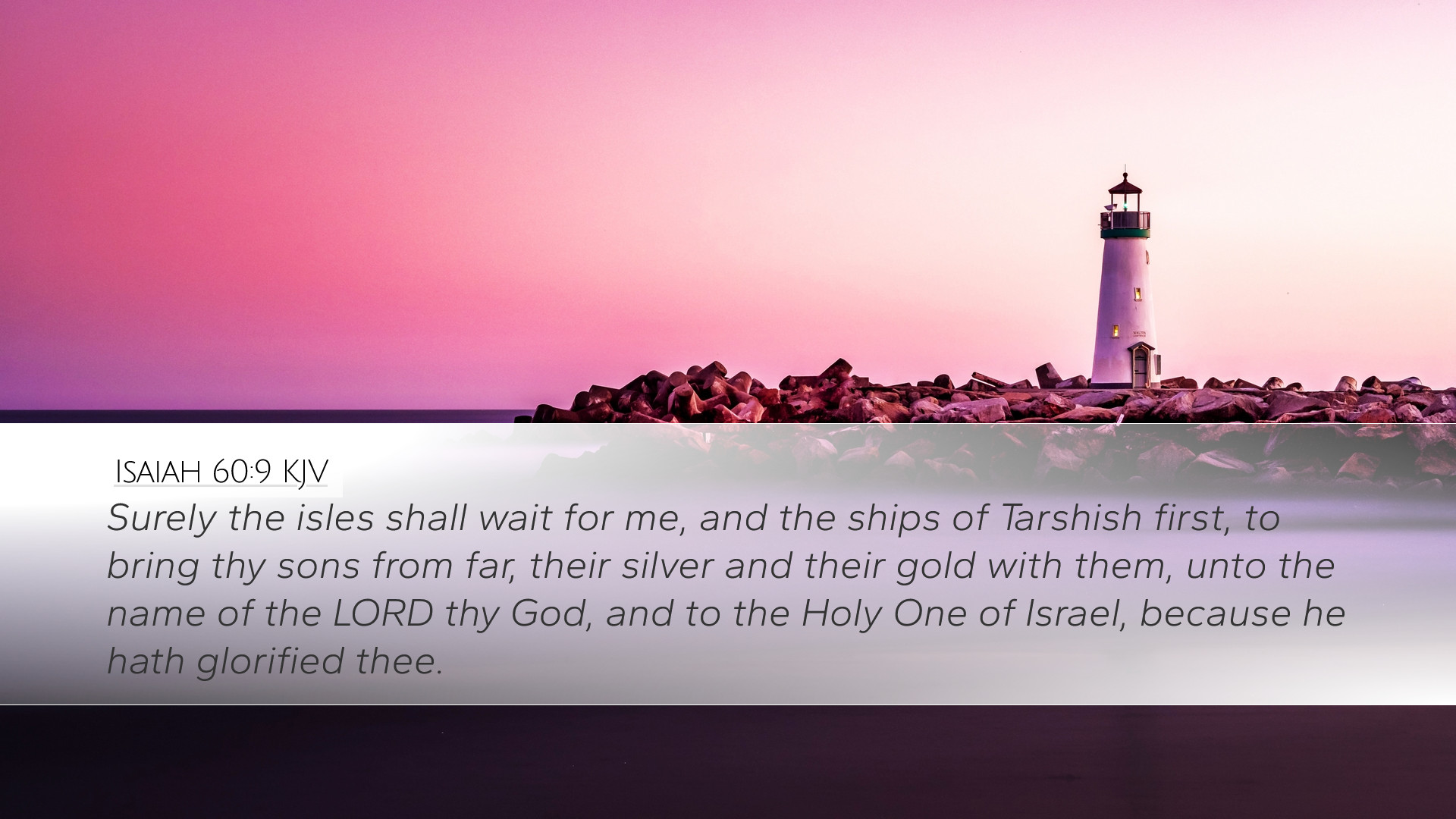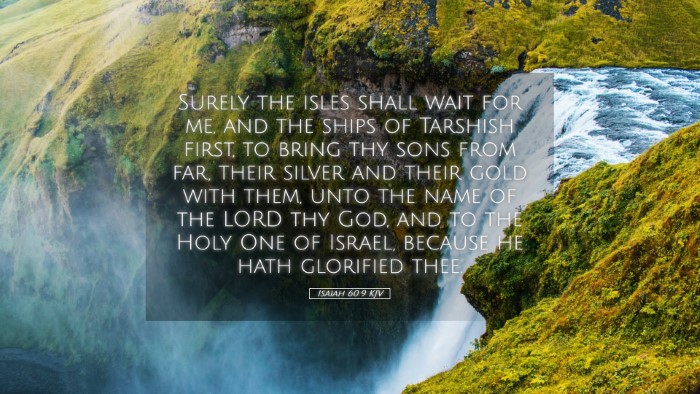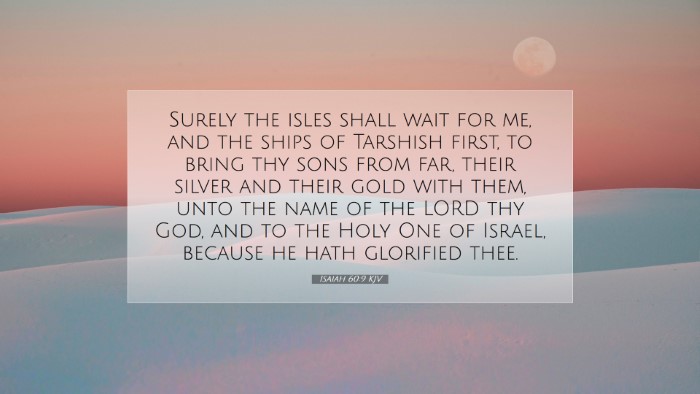Commentary on Isaiah 60:9
Verse Context: Isaiah 60:9 states, "Surely the islands shall wait for me, and the ships of Tarshish first, to bring thy sons from far, their silver and their gold with them, unto the name of the Lord thy God, and to the Holy One of Israel, because he hath glorified thee." This verse brings a powerful perspective on the restoration and glorification that God promises to His people.
Insights from Matthew Henry
Matthew Henry emphasizes the themes of restoration and divine favor represented in this verse. He notes that the God of Israel will gather His people, not in a desolate or shameful manner, but with honor and wealth. The "islands" signify distant nations, suggesting a universal call to worship and bring offerings, which can be interpreted as a metaphor for the broader Gentile inclusion into the covenant promise.
- Gathering of God's People: Henry presents the idea that God's people, represented here as "sons," are to be gathered from all corners of the earth, indicative of God’s sovereign power to reclaim and restore.
- Resources as Symbols: The silver and gold represent God's blessings and are used to demonstrate that the wealth of nations may be offered to God, which highlights the transformation and revival of the people.
- Divine Glory: The ultimate aim of this gathering is to glorify the "Holy One of Israel," which emphasizes that the riches and resources are not for selfish gain but for the worship of the Lord.
Insights from Albert Barnes
Albert Barnes provides a practical application to this prophetic promise, explaining the significance of “the ships of Tarshish.” He asserts that these ships symbolize the means by which the nations will assist in God's work, bringing forth blessings to His people.
- The Ships of Tarshish: Barns draws attention to the historical context of Tarshish known for its wealth and commerce, indicating that God will utilize even the mightiest nations for His purposes.
- A Missionary Vision: Barnes interprets that this verse carries an implicit call to evangelism, portraying a vision where God’s truth and wealth will be spread to the ends of the earth.
- Cosmic Participation: The gathering described is not merely a physical returning but a spiritual awakening where nations are animated to participate in God’s divine plan.
Insights from Adam Clarke
Adam Clarke expands on the imagery of the verse, particularly focusing on the notion of the “islands” waiting for God. He indicates that these islands represent the farthest reaches of civilization, emphasizing the worldwide scope of God's plan.
- Preparation and Expectation: Clarke notes that “waiting” signifies a sense of anticipation among nations to serve and bring glory to God. This anticipation extends beyond physical gathering to spiritual readiness for God’s blessings.
- Divine Commissioning: He emphasizes that God is the initiator in this process; nations are drawn to Him and driven to support the restoration of Israel, which reflects a divine ordering of events.
- Symbol of Redemption: Clarke highlights the redemptive process encapsulated in the words “with them,” pointing to a participative dynamic where both God and humanity engage in the covenant renewal.
Theological Implications
This verse offers profound theological insights surrounding the nature of God’s restoration and the inclusive vision of salvation. Several key themes can be drawn from the combined insights of these commentators:
- Universal Scope of Redemption: The engagement of distant nations showcases God's intent for a cosmopolitan community of faith, breaking geographical and cultural barriers.
- Holistic Restoration: The concept of wealth and resources being brought forth suggests a comprehensive restoration that includes spiritual, emotional, and material aspects of life.
- Divine Sovereignty: The text reinforces God's sovereignty as He orchestrates the gathering of His people and uses external nations to fulfill His purposes.
- Role of Worship: At the heart of this gathering is the ultimate aim of glorifying God. The wealth brought by nations is not merely a physical transaction but an act of worship and reverence.
- Call to Action: For contemporary believers, this prophetic call serves as a reminder to be active participants in the work of God’s kingdom, engaging both spiritually and materially in the mission of evangelism.
Conclusion
Isaiah 60:9 encapsulates a vision of hope that resonates through the ages. By examining the insights from Matthew Henry, Albert Barnes, and Adam Clarke, we understand that God's plan transcends borders and invites everyone into a relationship with Him. The richness of this verse encourages theologians, pastors, scholars, and students to explore the depths of God's word and challenge them to be agents of His glory in the world.


